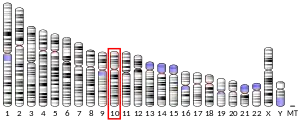| HSPA14 | |||||||||||||||||||||||||||||||||||||||||||||||||||
|---|---|---|---|---|---|---|---|---|---|---|---|---|---|---|---|---|---|---|---|---|---|---|---|---|---|---|---|---|---|---|---|---|---|---|---|---|---|---|---|---|---|---|---|---|---|---|---|---|---|---|---|
| Identifiers | |||||||||||||||||||||||||||||||||||||||||||||||||||
| Aliases | HSPA14, HSP70-4, HSP70L1, heat shock protein family A (Hsp70) member 14 | ||||||||||||||||||||||||||||||||||||||||||||||||||
| External IDs | OMIM: 610369 MGI: 1354164 HomoloGene: 74307 GeneCards: HSPA14 | ||||||||||||||||||||||||||||||||||||||||||||||||||
| |||||||||||||||||||||||||||||||||||||||||||||||||||
| |||||||||||||||||||||||||||||||||||||||||||||||||||
| |||||||||||||||||||||||||||||||||||||||||||||||||||
| |||||||||||||||||||||||||||||||||||||||||||||||||||
| |||||||||||||||||||||||||||||||||||||||||||||||||||
| Wikidata | |||||||||||||||||||||||||||||||||||||||||||||||||||
| |||||||||||||||||||||||||||||||||||||||||||||||||||
Heat shock 70 kDa protein 14 also known as HSP70-like protein 1 or heat shock protein HSP60 is a protein that in humans is encoded by the HSPA14 gene.[5][6]
References
- 1 2 3 GRCh38: Ensembl release 89: ENSG00000187522 - Ensembl, May 2017
- 1 2 3 GRCm38: Ensembl release 89: ENSMUSG00000109865 - Ensembl, May 2017
- ↑ "Human PubMed Reference:". National Center for Biotechnology Information, U.S. National Library of Medicine.
- ↑ "Mouse PubMed Reference:". National Center for Biotechnology Information, U.S. National Library of Medicine.
- ↑ Wan T, Zhou X, Chen G, An H, Chen T, Zhang W, Liu S, Jiang Y, Yang F, Wu Y, Cao X (March 2004). "Novel heat shock protein Hsp70L1 activates dendritic cells and acts as a Th1 polarizing adjuvant". Blood. 103 (5): 1747–54. doi:10.1182/blood-2003-08-2828. PMID 14592822.
- ↑ "Entrez Gene: HSPA14 heat shock 70kDa protein 14".
Further reading
- Furlini G, Vignoli M, Re MC, et al. (1994). "Human immunodeficiency virus type 1 interaction with the membrane of CD4+ cells induces the synthesis and nuclear translocation of 70K heat shock protein" (PDF). J. Gen. Virol. 75 (1): 193–9. doi:10.1099/0022-1317-75-1-193. PMID 7906708.
- Maruyama K, Sugano S (1994). "Oligo-capping: a simple method to replace the cap structure of eukaryotic mRNAs with oligoribonucleotides". Gene. 138 (1–2): 171–4. doi:10.1016/0378-1119(94)90802-8. PMID 8125298.
- Suzuki Y, Yoshitomo-Nakagawa K, Maruyama K, et al. (1997). "Construction and characterization of a full length-enriched and a 5'-end-enriched cDNA library". Gene. 200 (1–2): 149–56. doi:10.1016/S0378-1119(97)00411-3. PMID 9373149.
- Scheufler C, Brinker A, Bourenkov G, et al. (2000). "Structure of TPR domain-peptide complexes: critical elements in the assembly of the Hsp70-Hsp90 multichaperone machine". Cell. 101 (2): 199–210. doi:10.1016/S0092-8674(00)80830-2. PMID 10786835. S2CID 18200460.
- Lim MC, Brooke SM, Sapolsky RM (2003). "gp120 neurotoxicity fails to induce heat shock defenses, while the over expression of hsp70 protects against gp120". Brain Res. Bull. 61 (2): 183–8. doi:10.1016/S0361-9230(03)00113-8. PMID 12832005. S2CID 35451084.
- Ota T, Suzuki Y, Nishikawa T, et al. (2004). "Complete sequencing and characterization of 21,243 full-length human cDNAs". Nat. Genet. 36 (1): 40–5. doi:10.1038/ng1285. PMID 14702039.
- Brandenberger R, Wei H, Zhang S, et al. (2005). "Transcriptome characterization elucidates signaling networks that control human ES cell growth and differentiation". Nat. Biotechnol. 22 (6): 707–16. doi:10.1038/nbt971. PMID 15146197. S2CID 27764390.
External links
- HSPA14+protein,+human at the U.S. National Library of Medicine Medical Subject Headings (MeSH)
This article is issued from Wikipedia. The text is licensed under Creative Commons - Attribution - Sharealike. Additional terms may apply for the media files.




